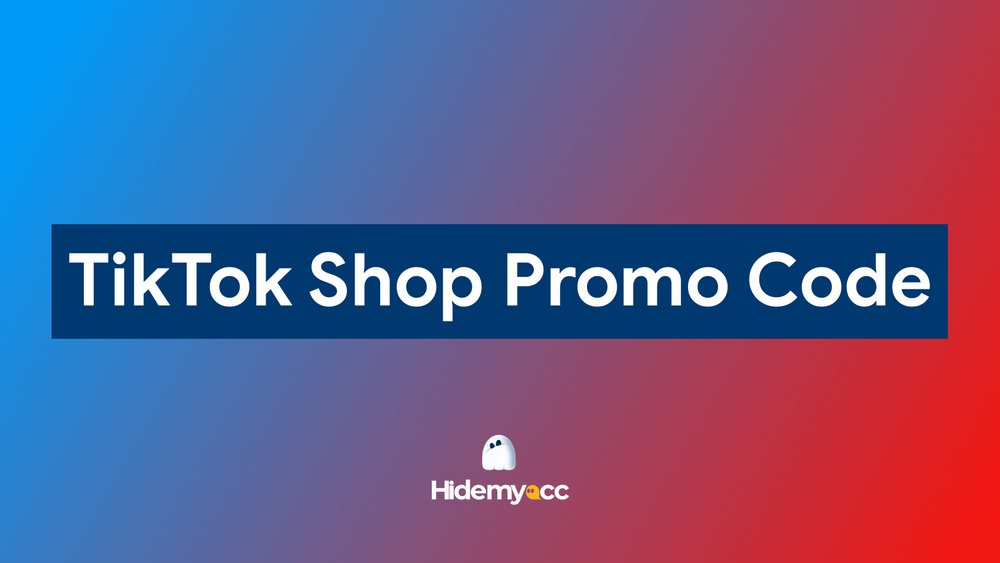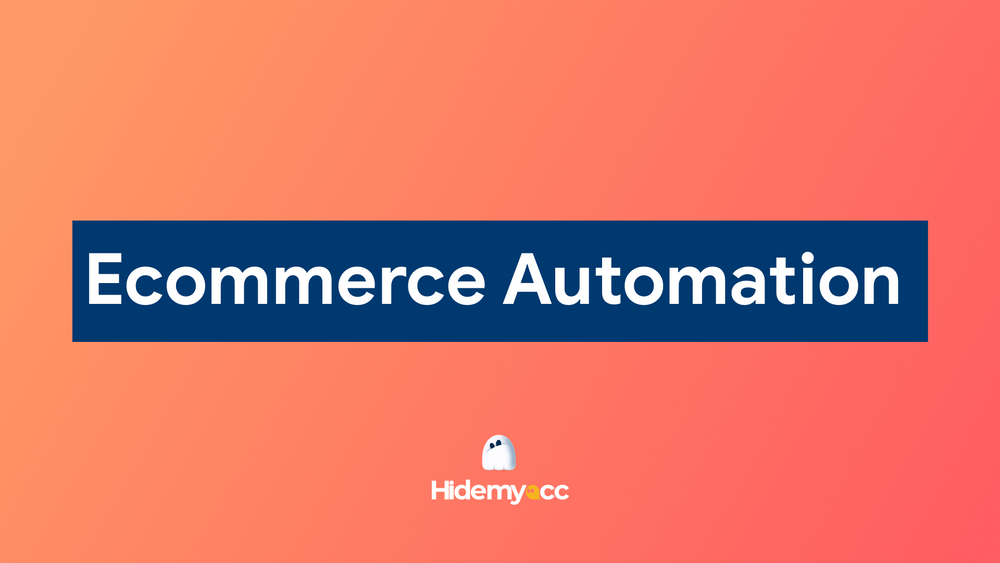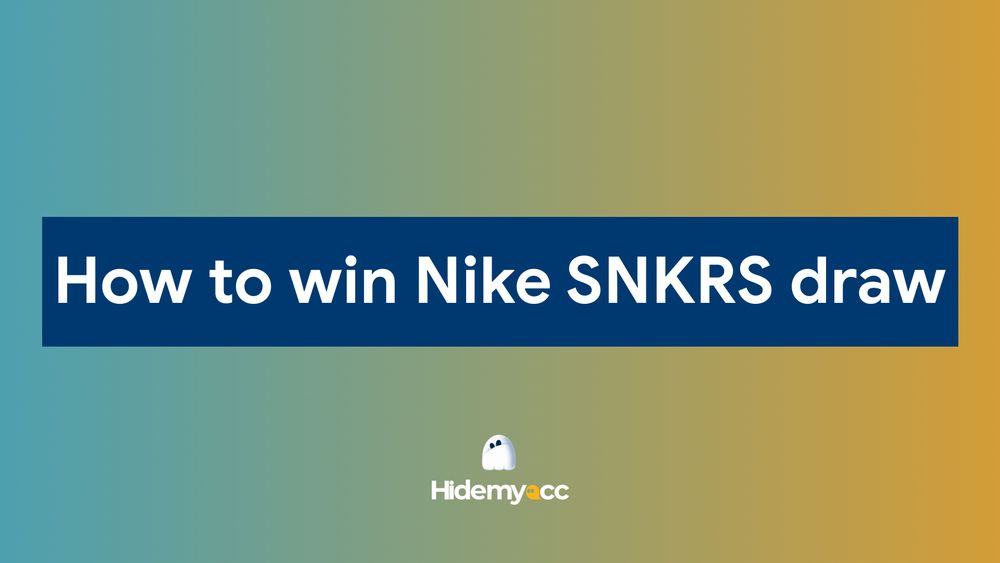Amazon SEO tools are essential for standing out in a crowded marketplace. With millions of listings on Amazon, you need more than just a good product- you need the right tools to optimize and compete. In this article, Hidemyacc introduces 17 powerful Amazon SEO tools to help you rank higher and grow your store.
1. What makes Amazon SEO different?
Amazon SEO isn’t the same as Google SEO. While Google cares about backlinks and content authority, Amazon is all about sales performance and relevance.
Amazon’s A9 algorithm considers things like:
- Keyword relevance (how well your listing matches the search query)
- Sales history (products that convert well rank better)
- Customer satisfaction (reviews, ratings, returns)
- Content quality (images, bullet points, descriptions)
So, the goal of using Amazon SEO tools is to:
- Find keywords that drive traffic and conversions
- Optimize your listings to attract clicks and sales
- Monitor your competition and market trends
2. Key factors when choosing Amazon SEO tools
Not all Amazon SEO tools are created equal. Choosing the right one depends on what you need help with, whether it’s finding keywords, writing listings, or tracking the competition.
Here are some key criteria to look for:
- Keyword accuracy: Does the tool give reliable search volume and relevancy data?
- Listing optimization: Does it offer guidance for improving titles, bullet points, and descriptions?
- Ease of use: Is the interface user-friendly for both beginners and advanced sellers?
- Value for money: Are the features worth the subscription cost?
- Support & resources: Are tutorials, webinars, and customer support readily available?
Let’s dive into the top tools that stand out based on these factors.
3. Top 17 Amazon SEO tools to boost your rankings
3.1. Helium 10
Helium 10 is one of the most powerful and widely used Amazon SEO tools. It covers everything from keyword research and listing optimization to market analysis and inventory tracking.
Key features:
- Magnet & cerebro: Two keyword tools for generating and reverse-searching high-performing keywords
- Frankenstein & scribbles: Help with keyword organization and listing writing
- Listing analyzer: Audits your current listing and suggests improvements
Pros:
- Extremely comprehensive
- Offers free plan with limited features
- Regular updates and great support
Cons:
- Can be overwhelming for new users
- Full features can get expensive
Helium 10 goes beyond keyword suggestions. It gives you tools to execute every part of your SEO strategy in one place.
3.2. Jungle Scout
Jungle Scout is known for helping sellers find profitable product opportunities, but it also includes strong SEO features that support listing optimization and keyword targeting.
Key features:
- Keyword scout: Identifies high-volume, low-competition keywords
- Listing builder: Helps create optimized product pages
- Sales analytics: Tracks how your keyword strategies impact performance
Pros:
- Clean interface, easy to navigate
- Ideal for product launches and scaling
- Great educational content
Cons:
- Not as deep in SEO-specific tools as Helium 10
- Focused mainly on the US market
By combining keyword insights with real-time sales data, Jungle Scout helps you make smarter listing decisions.
3.3. SellerApp
SellerApp combines PPC analytics, keyword tracking, and listing optimization in one platform. It’s a smart choice if you like seeing performance trends in a single view.
Key features:
- AI-powered keyword tool: Generates keyword ideas and search volumes
- Listing quality checker: Grades your listings and provides suggestions
- PPC analyzer: Helps fine-tune your paid search strategy
Pros:
- Strong keyword and PPC integration
- Supports multiple Amazon marketplaces
- Great for agencies and teams
Cons:
- Interface has a learning curve
- Some tools require higher-tier plans
This tool gives you clear action steps based on live performance data, so you’re never guessing what to optimize.
3.4. AMZScout
AMZScout is great for uncovering untapped niches and long-tail keywords. While not as robust in listing optimization, its keyword tools are solid for early-stage SEO work.
Key features:
- Keyword explorer: Surfacing long-tail keyword ideas
- Product database & tracker: Spotting trends in specific categories
- Chrome extension: On-the-fly keyword checks while browsing Amazon
Pros:
- Affordable and lightweight
- Excellent for beginners
- Helpful browser tools
Cons:
- Limited listing optimization tools
- UI feels dated compared to competitors
By focusing on niche keywords, AMZScout helps new sellers avoid overly competitive markets.
3.5. SmartScout
SmartScout is a unique tool that focuses more on seller and brand analysis than traditional SEO. It’s perfect if you want to see what top-performing sellers are doing and replicate their success.
Key features:
- Brand & seller maps: Shows how brands perform in various categories
- Traffic graph: Insights into keyword performance by competitors
- ASIN targeting: Discover gaps your competitors missed
Pros:
- Focus on actionable data
- Excellent for building strategy
- Great UI
Cons:
- Not a classic SEO tool
- May be better as a secondary tool
By analyzing what’s working for top competitors, SmartScout helps you shape a smarter keyword and listing strategy.
3.6. Viral Launch
Viral Launch is ideal for new product rollouts and gaining traction fast. It focuses heavily on keyword performance, market intelligence, and strategic launching.
Key features:
- Keyword research: Real-time keyword demand
- Listing builder: Step-by-step optimization guidance
- Market intelligence: Forecasts trends and competition
Pros:
- Great for launching new SKUs
- Clean dashboard
- Helpful recommendations
Cons:
- Less useful for ongoing SEO
- Fewer integrations than competitors
Getting off to a strong start can make all the difference, and Viral Launch gives your product the SEO boost it needs right from day one.
3.7. MerchantWords
MerchantWords has one of the largest keyword databases focused on Amazon. If you want fast, idea-heavy suggestions, it delivers.
Key features:
- Keyword explorer: Millions of Amazon search terms
- Listing advisor: Optimizes based on your current keywords
- Market insights: Understand buyer behavior
Pros:
- Fast and simple interface
- Great for brainstorming keywords
- Strong international support
Cons:
- Not many extra features
- Doesn’t offer deep analytics
With access to more keyword data, MerchantWords opens up more chances for your listings to show up in Amazon search results.
3.8. ZonGuru
ZonGuru is an all-in-one platform tailored for private label sellers. It offers keyword research, listing optimization, and even customer communication tools, making it ideal for those looking to scale operations.
Key features:- Keywords on fire: Discover high-performing, niche-specific keywords
- Listing optimizer: Real-time suggestions to improve your product listings
- Love-hate tool: Analyzes customer reviews for optimization ideas
Pros:
- Focused on private label sellers
- Combines SEO, automation, and review mining
- Offers Chrome extension and mobile app
Cons:
- Some tools feel underdeveloped
- Interface may feel cluttered for beginners
ZonGuru shines in helping sellers turn data into actionable insights, particularly for building stronger, customer-aligned listings.
3.9. DataHawk
DataHawk is built for sellers and brands who love numbers. With advanced dashboards and reporting features, it helps you track your product rankings, keyword performance, and market trends over time.
Key features:
- SEO tracker: Monitor keyword positions daily
- Content optimizer: Grade your listings for better visibility
- Analytics Hub: Customizable dashboards for sales and keyword tracking
Pros:
- Ideal for data-driven users and agencies
- Excellent API and reporting tools
- Scales well with larger catalogs
Cons:
- Learning curve for non-technical users
- More focused on tracking than discovering new keywords
DataHawk is perfect if you want a long-term view of SEO performance and trends, not just quick wins.
3.10. Sellics
Sellics combines SEO with advertising tools, making it a hybrid platform for sellers running both organic and paid strategies. It's great for monitoring how your PPC and SEO work together to drive sales.
Key features:- Keyword research tool: Find high-volume, converting terms
- Content & SEO module: Optimizes titles and bullet points
- PPC manager: Analyze and automate ad spend
Pros:
- Combines SEO and ad performance in one dashboard
- Strong reporting capabilities
- Trusted by large brands
Cons:
- Steeper pricing for full features
- Not ideal if you're focused only on organic SEO
If you want a unified view of your Amazon marketing, Sellics is a powerful solution that connects SEO with advertising performance.
3.11. Ahrefs for Amazon
Ahrefs recently extended its capabilities to Amazon, making it useful for sellers who want to apply traditional SEO strategies to product listings. Though not Amazon-first, its keyword database is extensive.
Key features:- Amazon SERP keyword research
- Competitor keyword analysis
- Keyword difficulty metrics tailored for e-commerce
Pros:
- Large database and trusted algorithms
- Great for multi-platform SEO
- Flexible keyword tools
Cons:
- Expensive for Amazon-only users
- Some tools not tailored for Amazon's A9 algorithm
Ahrefs helps if you're selling on multiple channels and want one tool to guide your keyword strategy across all of them.
3.12. ZonBase
ZonBase focuses on simplicity and speed, offering straightforward tools for keyword research, product discovery, and listing enhancement. It’s a solid pick for newer sellers who want quick results.
Key features:- ZonResearch: Uncovers profitable niches
- Keyword tool: Generates relevant, high-volume terms
- Listing optimizer: Grades and improves your product content
Pros:
- Very beginner-friendly
- Affordable pricing
- Responsive customer support
Cons:
- Lacks depth in market analysis
- No multi-account management features
ZonBase helps you find and launch products fast without getting lost in a sea of advanced features.
3.13. Keyword Tool (keywordtool.io)
Keyword Tool uses Amazon's own autocomplete engine to surface long-tail keyword opportunities. It’s ideal for brainstorming and expanding your keyword list without overpaying for analytics.
Key features:- Amazon autocomplete scraper
- Country- and category-specific filters
- Easy export of keyword suggestions
Pros:
- Fast and lightweight
- No login needed for basic use
- Great for long-tail and niche keywords
Cons:
- No listing or performance tracking
- Lacks integration with Amazon ads or sales data
This tool is perfect for quickly generating fresh keyword ideas to test in your listings or PPC campaigns.
3.14. ProfitGuru
ProfitGuru goes beyond SEO to offer deep insights into suppliers, brands, and seller competition. It’s particularly useful for FBA sellers looking to scale with data-backed decisions.
Key features:- Brand database: Analyze brand performance and competition
- Supplier discovery: Source verified suppliers for Amazon
- Keyword trends: See which keywords drive top listings
Pros:
- Excellent for product sourcing + SEO
- Data-rich interface
- Competitive seller tracking
Cons:
- Less focused on listing optimization
- Interface takes time to learn
ProfitGuru is best for sellers who want to merge keyword strategies with smart sourcing and brand analysis.
3.15. AMZBase
AMZBase is a free browser extension that helps you research ASINs, check FBA fees, and pull keyword data instantly while browsing Amazon. It’s great for fast, on-the-go research.
Key features:
- ASIN lookup and product info extraction
- Keyword ideas and Google trends view
- One-click access to CamelCamelCamel, Alibaba, and more
Pros:
- Completely free
- Simple and fast interface
- Great for product validation
Cons:
- Limited to browser-only use
- No in-depth SEO dashboard
AMZBase is the ideal lightweight companion tool for anyone doing quick Amazon research on a budget.
3.16. Scope by Seller Labs
Scope focuses on keyword discovery, ASIN-level analysis, and tracking. It's built for Amazon sellers who want to understand their competitors at a granular level.
Key features:- ASIN reverse lookup: Find what keywords competitors rank for
- Keyword tracker: Monitor performance over time
- Keyword suggestions: Based on actual Amazon search volume
Pros:
- Powerful competitive insights
- Clear keyword visibility reports
- Solid Chrome extension
Cons:
- UI feels slightly dated
- Doesn’t offer content optimization tools
Scope is great for sharpening your keyword game by understanding what’s working for the top sellers in your niche.
3.17. Revseller
Revseller is a Chrome extension that gives you instant product validation, profit estimates, and keyword suggestions while browsing Amazon listings.
Key features:- Real-time profit calculator
- Quick keyword data with sales rank
- Variation viewer and stock checker
Pros:
- Super fast insights for retail arbitrage
- No monthly dashboard to manage
- Easy to use and low-maintenance
Cons:
- Only works in-browser
- Lacks deeper SEO features
Revseller is best if you need fast, on-page SEO cues and profitability estimates while sourcing or analyzing listings live.
4. Comparison table: Which Amazon SEO tool fits you best?
Below is a comparison table to help you find the Amazon SEO tool that best fits your needs:
|
Tool |
Best For |
Free Plan |
Keyword Research |
Listing Optimization |
Market Intel |
|
Helium 10 |
All-in-one power users |
Yes |
✅ |
✅ |
✅ |
|
Jungle Scout |
Product research + SEO |
No |
✅ |
✅ |
✅ |
|
SellerApp |
Analytics-heavy users |
Yes |
✅ |
✅ |
✅ |
|
AMZScout |
Niche keyword research |
Yes |
✅ |
❌ |
✅ |
|
SmartScout |
Competitor tracking |
No |
✅ |
❌ |
✅ |
|
Viral Launch |
Product launching |
Yes |
✅ |
✅ |
✅ |
|
MerchantWords |
Bulk keyword research |
No |
✅ |
❌ |
✅ |
|
ZonGuru |
Private label scaling |
Yes |
✅ |
✅ |
✅ |
|
DataHawk |
SEO performance tracking |
Yes |
✅ |
✅ |
✅ |
|
Sellics |
SEO + PPC combo |
No |
✅ |
✅ |
✅ |
|
Ahrefs (Amazon) |
Multi-platform keyword SEO |
No |
✅ |
❌ |
✅ |
|
ZonBase |
Fast product launches |
Yes |
✅ |
✅ |
❌ |
|
Keyword Tool |
Long-tail keyword ideas |
Yes |
✅ |
❌ |
❌ |
|
ProfitGuru |
Keyword + supplier insights |
No |
✅ |
❌ |
✅ |
|
AMZBase |
Quick product validation |
Yes |
✅ |
❌ |
❌ |
|
Scope |
ASIN keyword research |
No |
✅ |
❌ |
✅ |
|
Revseller |
On-page SEO + profit check |
No |
✅ |
❌ |
❌ |
5. Conclusion
There’s no one-size-fits-all answer when it comes to Amazon SEO tools. The best one for you depends on your goals, budget, and selling experience. Whether you’re just getting started or managing a full catalog, investing in the right tools can save time, reduce guesswork, and ultimately boost your visibility.
And if you're managing multiple accounts or working with a team, combining your SEO strategy with a browser isolation tool like Hidemyacc can streamline operations and help maintain account security - especially when scaling across different marketplaces.
If you’re unsure where to start, try one or two tools with free plans and test them for your product category. As your store grows, you can upgrade to more comprehensive solutions. It’s all about building the right stack for your workflow.
>>> Other articles about Amazon platform:
- Open multiple Amazon seller accounts: Legal and grayhack method
- Why is your Amazon account locked? 3 tips to unlock it
- Merch by Amazon: How to make money with it?
6. FAQ
1. Can I do SEO on Amazon?
Yes, you can. Amazon SEO means optimizing your listings to rank higher in search results. Focus on using the right keywords, clear titles, bullet points, and good visuals to increase conversions.
2. Can I rank for keywords on Amazon?
Absolutely. Use tools like Helium 10 or Jungle Scout to find high-traffic keywords. Add them to your title, bullet points, and backend fields. Strong images, pricing, and reviews also help boost rankings.
3. Can I do SEO without paying?
Yes, partly. You can use Amazon’s search suggestions, study top competitors, or try free versions of tools like Helium 10. Paid tools offer deeper data, but free methods still work for basic SEO.






